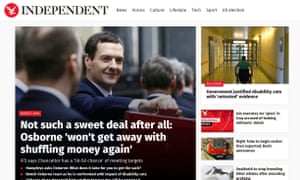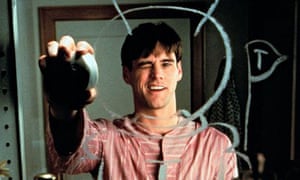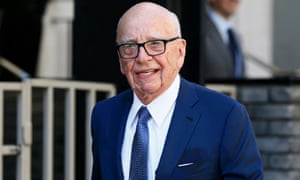Section A
More detail needed
Personal identity needs to be expanded on
Make sense
Section B
Where is the news case study? We spent 15 weeks studying it!
Where are the examples? theories?
Some good points in there to build on but a lot of work to do before the real thing
2) Read through the mark scheme. Pay particular attention to page 9 that has suggested content for each of the questions in Section A. How many of these potential points did you make? Did you successfully answer the questions?
Q1: Faster editing, Identification developed via montage celebrating universality of marriage and soundtrack.
Q2: Identity and control representations
Q3: Demographic targeting
3) Now look at page 15 of the mark scheme. How many of the broad areas suggested by AQA did you cover in your Section B essay? Did you successfully answer the question?
Q7: Individual freedom
4) Read the Examiner's Report in full. For each question, would you classify your response as one of the stronger answers or one of the weaker answers the Chief Examiner discusses? Why? What could you do differently next time? Write a reflection for EACH question in the paper.
Q1: I believe i did poor on this and would need to improve on my media terminology as with Diegetic and non-digetic. i gave points which would give me a mark however, this would not be in detail as in not giving an example and the effect of this. Next time i would need to work on the depth and media terminology as to how it gives the effect to the audience and what message it is sending.
Q2: I did bad in this question too, giving points but not explaining them widely. I would be needing to link to personal identity but gave very vague points on this. next time i would be wanting to work on giving the detail into identity and the effects on the two videos shown. I need to read my work carefully because i don't make sense in one paragraph about the theory uses and gratification.
Q3: i believe this was a hard question and did the same by giving points about demographics but didn't exceed to any other points as to advertising they did in the videos. i believe next time i would need to bring my own digital news stories and bring more points. This would be because of my time management which would need to be worked on.
Q7: I believe i did bad in this and need to work on my time management. i gave good points as to linking with my case study but i believe i needed more theory, media terminology and depth within my answers. Next time i would need to work with time and try to atleast focus more on section B as it does hold most of the marks.
5) Choose your weakest question in Section A and re-write an answer in full based on the suggested content from the Examiner's Report. This answer needs to be comprehensive and meet the criteria for Level 4 of the mark scheme. This will be somewhere between 3-6 well-developed paragraphs (depending on the number of marks).
Question 1: Contrast the techniques used by each product to communicate its message
With the first advert from Google Nexus 5 gives a viewpoint of a photographer this would be showing the different environments where the camera can be used. it gives the features of slow motion and video recording in difficult lighting. The message it gives is that its unique phone which can ergonomically fit with the user and can take pictures in the most difficult atmospheres. This is different to the second text which is very fast editing giving a fast pace to the audience's eye. It gives this effect as to the text being shown and making the audience think as to our identity. For example it gives the text on different people faces as to what our name is or what our height is. it communicates the message that we are unique and if we really know the question of who we are. However there are similarities with the texts on the nexus 5 advert but it is a normal pace with simple text which communicates the message of the different places where the phone can be used and how it can be used as to messaging and social networking.
Both of the text give a similarity with being social as to data being taken from people. It is both communicating people to be part of a group. for example Nexus is giving the persuasion to be part of the technology and the Bluefish video is giving the option to be part of a religious belief. They both give different people in the adverts who are different in age as to the girl in the Nexus advert and the different faces in the Bluefish ad. This communicates the message that it appeals to all different people and that no matter what age or nationality any body would interested in the phone or can choose what they want to have a belief in. The techniques used in each product is similar in some ways as to being social and the idea of having big bold text to give audience idea to questions themselves. There are also differences as to identification being developed as to the celebration of universality of marriage shown by the homosexual couple. this would be the effect of the nexus communicating the message to the audience that it can be used in any happy environment and that we are in an era of no judgement anymore.
For example the Nexus is given in different locations and different kind of cultures and gives the message that its for anybody. This would be by the fact it gives the idea of self realisation as to audience believe they should get this product not only because how good it is but how the industry want to be shown and represented as they give their message of being a business which will sell to anyone and doesn't judge. This would also be by the catchy soundtrack with the Non-diegetic sounds and the whistling noise which communicates the message of happiness and Diegetic sounds of people being happy which communicates that with this phone we should be recording moment like that and save them. Finally there are similarities and differences with these two texts but they give the message of self-realisation hugely as to audience wondering if they want the phone for the Nexus and if they want to change belief. This is an effect because it is making audience contemplate what they want to do which is important as it is creating a desire for the nexus and a question of who they are for the Bluefish video using the techniques of texts and images. For example the different places in the nexus advert and the text with the Bluefish advert.











